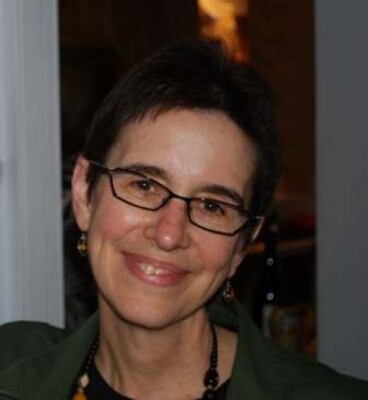

Suzanne M. Bianchi
April 15, 1952 — November 4, 2013
Dr. Suzanne M. Bianchi, a sociologist who helped define the field of family demography with her research into the dramatic changes in the American family in the latter half of the 20th century, died Nov. 4 at her home in Santa Monica, Calif., a short time after being diagnosed with pancreatic cancer. She was 61. Suzanne was the Dorothy Meier Chair in Social Equities and a distinguished professor of sociology at UCLA. A Celebration of Life will be held on Saturday, November 16th at 11:00 a.m. in the Chapel of the Laufersweiler-Sievers Funeral Home. Visitation will be from 9:30 a.m. to 11:00 a.m. on Saturday November 16th at the funeral home. Suzanne was born in Fort Dodge, IA to Rita and Pesho Bianchi. She was the Valedictorian of her 1970 Saint Edmond's class. She earned her B.A. in Sociology from Creighton University, her M.A. from University of Notre Dame, and her PhD from the University of Michigan - Ann Arbor by the age of 26. Suzanne left the Midwest to spend most of her career in Washington, DC. In 1978, she joined the U.S. Census Bureau as a demographic statistician and rose to Assistant Division Chief for Social and Demographic Statistics in the Population Division, a position she held until 1994 when she joined the faculty of the University of Maryland College Park as Professor of Sociology. During her 15 years at Maryland, Suzanne served as Founding Director of the Maryland Population Research Center as well as Chair of the Department of Sociology. She served as Population Association of America President in 2000 and editor of the well-respected journal Demography. In 2009, Suzanne joined the UCLA faculty, enjoying the sunny weather and coastal beauty of the LA area. She authored seven books, including the award-winning Balancing Act: Motherhood, Marriage and Employment Among American Women (with Daphne Spain), Continuity and Change in the American Family (with Lynne Casper), and Changing Rhythms of American Family Life (with John Robinson and Melissa Milkie), as well as over 70 journal articles and book chapters. Her research has had a profound impact on how social scientists, policy-makers, and the public think about the most pressing questions about families of our time. In 2003, she was awarded the University Alumni Merit Award from the College of Arts and Sciences at her undergraduate alma mater, Creighton University. This August, she received the Distinguished Career Award from the family section of the American Sociological Association. Suzanne is best known for investigating the rapidly evolving ways in which contemporary American women (and men) juggle the demands of their work and family lives. "What happened on the road to gender equality?" Suzanne once said in an interview. "A lot of work happened." As a modern feminist and working mother, Suzanne came to embody the work she conducted on the evolving American family and gender roles, using her life experiences to motivate her academic pursuits. She was noted within her field for her pragmatism, discipline and curiosity, as well as her mentoring abilities, from which dozens of scholars across the country have benefited. "Suzanne's death is a tremendous loss for family demography and sociology, to which she contributed so much, and to the network of collaborators, students and former students that she nurtured during her too-short career," said Philip Cohen, a former student and University of Maryland, College Park, sociologist. Until Suzanne's research, social scientists assumed that mothers' involvement in the workplace kept them from home, and that the loss of time with their mother harmed children. Suzanne found that even though mothers' labor-force participation had increased, the time they spent with their children had changed very little. Suzanne showed that employed mothers adjusted their work hours, did less housework, slept less and partook in fewer leisure activities in order to be able to spend more time with their children. "My one concern is that I have given the impression that women have found it quite easy to balance increased labor force participation with child rearing, to reduce hours of employment so as to juggle childcare, and to get their husbands more involved in child rearing; and that fathers have found it easy to add more hours with children to those they already commit to supporting children financially," Suzanne said in her Presidential address to the Population Association of America in 2000. "I do not think these changes have been easy for American families, particularly for American women. "Why have women so increased their hours of paid employment?" she asked. "Many observers would emphasize constraints -- men's poor labor force prospects -- and this is probably part of the story. But this explanation is not sufficient, for it gives too little attention to the dramatic change in opportunities for women and in women's own conceptions of what a successful, normal adulthood should entail." In the latest phase of her career, Suzanne was studying transfers of time and money between parents and children, especially when parents launch adult children by helping them financially and looking after grandchildren and when adult children help their aging and infirm parents with errands and intense caregiving. At the time of her death, she was writing a book with UCLA sociologist and friend Judith Seltzer on parent-child relationships in later life. "She was a valued member of advisory boards and committees for professional organizations because of her fairness, good nature and ability to get things done in a seemingly effortless way," Seltzer said. "These qualities made Suzanne an exceptional mentor to junior colleagues and students. Her attention to fostering the careers of the next generation came from her unwavering belief in a bright future." Suzanne's Midwestern values stayed with her throughout her life, keeping her grounded in what's important in life at home and at work. She fostered the careers of her students and colleagues, published for a broad audience, and most importantly to her, raised 3 wonderful children, Jennifer, James, and Jonathan. She would be the first to say that her career also demonstrated the importance of having a fully-involved and supportive husband in Mark Browning to whom she was married for 31 years. She succeeded in achieving a balanced work and family life, although she would have been more likely characterize it as a constant striving rather than an achievement. She will be dearly missed by her children, husband, mother Rita, five siblings, Mike, Diane, Mary, Dave, and Ric Bianchi, and family and friends from near and far. Visitation Sat, Nov 16, 2013 at 9:30 am - 11:00 am Laufersweiler-Sievers Funeral Home 307 South 12th Street Fort Dodge, Iowa 50501 Service Sat, Nov 16, 2013 at 11:00 am Laufersweiler-Sievers Funeral Home 307 South 12th Street Fort Dodge, Iowa 50501
Photo Gallery
Guestbook
Visits: 56
This site is protected by reCAPTCHA and the
Google Privacy Policy and Terms of Service apply.
Service map data © OpenStreetMap contributors


